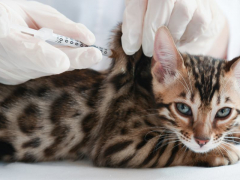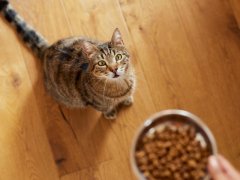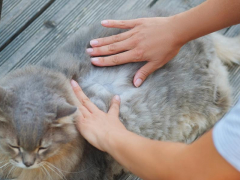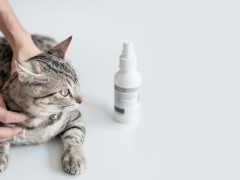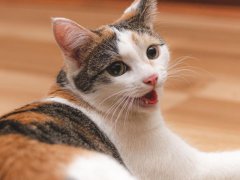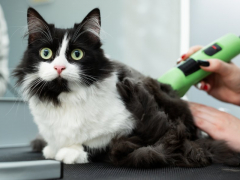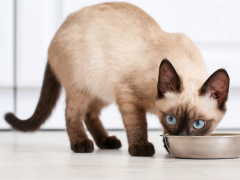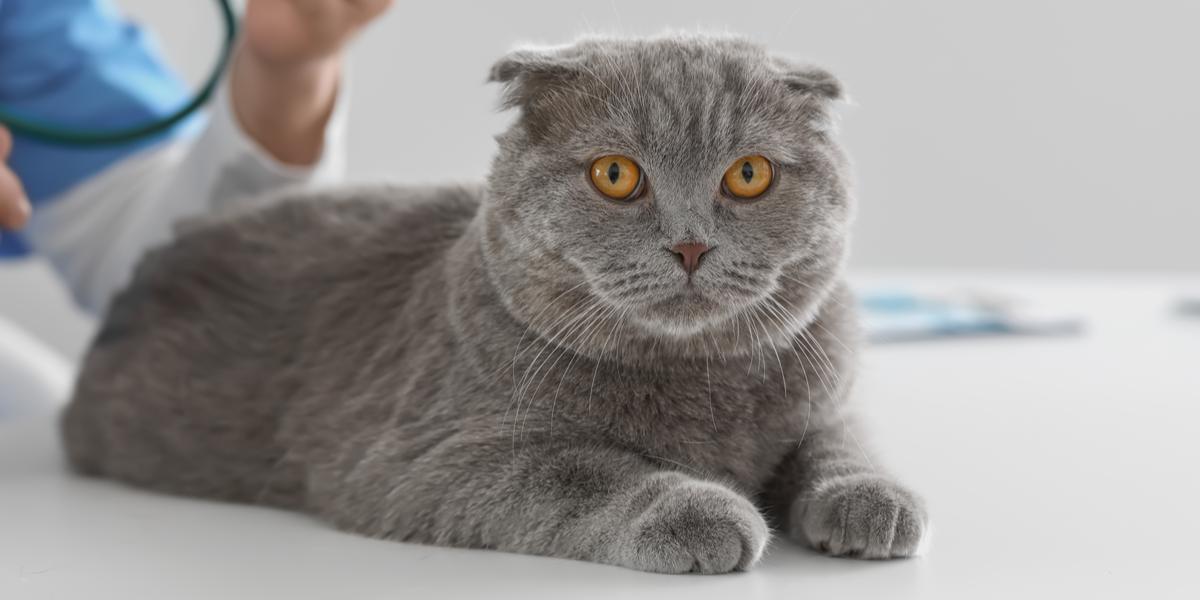
Pimobendan, which the common name for the brand-name drug Vetmedin, is manufactured by Boehringer Ingelheim Animal Health.Pimobendan is a medication sometimes used in cats in veterinary medicine as part of a medication protocol for certain types of heart disease.
In this article, you’ll learn what pimobendan is, how it affects the heart, when it may be used, common side effects, and some frequently asked questions.
Pimobendan for Cats Overview

About Pimobendan for Cats

Pimobendan is a medication called an inodilator. An inodilator is a type of medication that has two basic functions.
The first is that it acts as a positive inotrope. Positive inotropes help the heart to contract more efficiently, by pumping more blood with fewer heartbeats.
The second is that it acts as a vasodilator. This means that it dilates, or widens, blood vessels. This not only reduces blood pressure, but also reduces the resistance blood vessels have against blood flow.
The combination of making heart contractions more efficient and reducing resistance against blood flow reduces workload on the heart.
In patients with certain types of heart disease, the heart may be working much harder to pump blood throughout the body, which leads to abnormal thickening of the heart muscle and higher pressure in the blood vessels, which in turn lead to a continual cycle of worsening disease.
In theory, by reducing workload on a stressed heart, the effects of pimobendan can slow down progression of heart disease and delay onset to heart failure in some patients. In others, it may be used to keep a tired out heart contracting as efficiently as possible, extending survival times.
What Does Pimobendan Do for Cats?
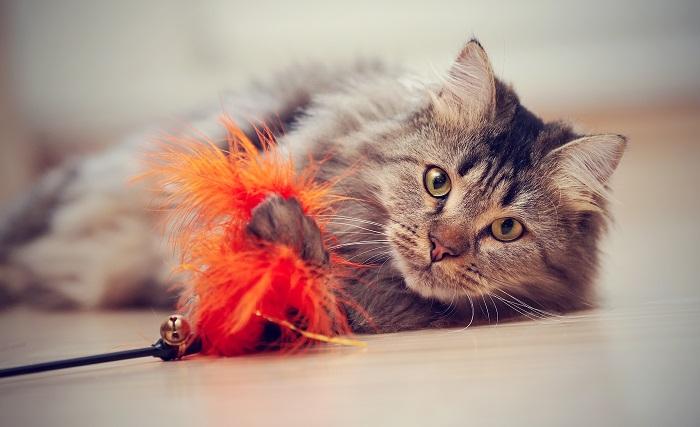
Cats with heart disease may tire more easily during play sessions.
Although it’s only FDA-approved for use in dogs, pimobendan is still widely used in cats, especially cats suffering from the heart disease hypertrophic cardiomyopathy (HCM) and similar heart conditions causing cardiac disease.
In dogs, who often have different types of heart disease compared to cats, pimobendan is used to slow down heart disease and delay progression to heart failure. But in cats, pimobendan is more often used after heart failure has occurred.
In cats with HCM who had developed CHF, research has shown that the addition of pimobendan extended survival times.
But in general, research can be conflicting. While some has shown benefit, pimobendan has not shown to be effective in other cases. Some of this has to do with variations in how HCM may be characterized in cats.
Pimobendan may not be effective and may in fact be harmful in some cats with HCM that also have blood outflow obstruction because of their heart disease. This subset of HCM is called hypertrophic obstructive cardiomyopathy (HOCM). Because pimobendan makes the heart contract and “squeeze” more, this action may worsen areas of the heart that are already suffering from obstructed blood flow because of thickened heart muscle.
But there are a few different causes of obstructive cardiomyopathy in cats. So while some may be negatively affected by addition of pimobendan, this is not the case for all. Characterizing the specific cause of obstruction in HOCM is crucial in determining if pimobendan is appropriate or not.
The presence of a heart murmur, high proBNP blood test levels, and x-ray views of the chest showing an enlarged heart shape may suggest the presence of heart disease, but heart disease is most specifically diagnosed through an echocardiogram (sonogram or ultrasound of the heart).
This is most often performed with a veterinary cardiology specialist and allows for the best assessment of heart muscle wall thickening, heart chamber thickening or enlargement, the heart’s contractility, valve disease, obstructions to blood outflow, blood clot presence, and other aspects.
Findings based on echocardiography are the most specific way of determining whether pimobendan is appropriate to use in a particular kitty or not.
Veterinary cardiology may not be accessible for all kitty parents in all regions. It is possible for a general practitioner with experience using pimobendan to determine that the medication is worthwhile to include.
Pimobendan Side Effects
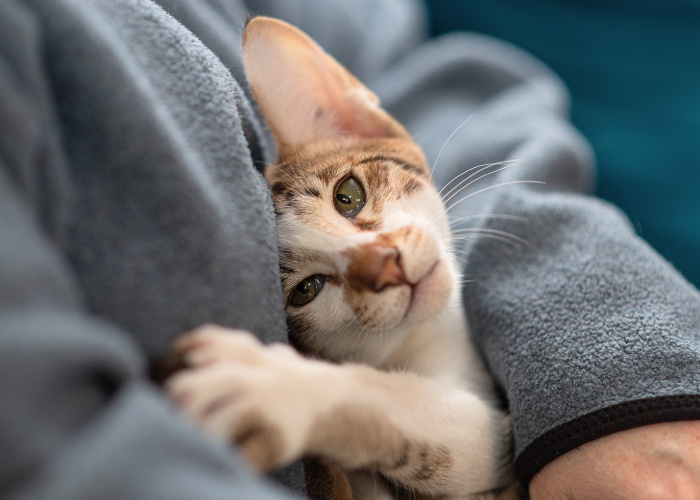
Much of the knowledge of adverse effects caused by pimobendan is recorded in dogs. In dogs, gastrointestinal effects like decreased appetite, vomiting, and diarrhea are noted most often.
Of 41 adverse events involving cats that were reported to the ASPCA Animal Poison Control Center from 2009-2013 where overdoses of pimobendan took place, only six of them (about 30 percent) showed signs of vomiting.
Arrhythmias, where the heart beats in an abnormal pattern and causes an abnormal heart rate, were seen to develop in some dogs on pimobendan. However, since primary heart disease may also cause arrhythmias, the significance is unclear. This has not been reported specifically in cats.
Cats with a specific type of heart abnormality called a left ventricular outflow tract obstruction, which is a subset of hypertrophic obstructive cardiomyopathy or HOCM, appeared to generally do worse on pimobendan than cats who did not have this abnormality. This type of abnormality may be seen in only some cases of heart disease and can be determined with an echocardiogram.
Use of pimobendan in pregnant or nursing animals has not been determined, and so should be used cautiously in these pets.
If you are ever concerned that your kitty may have developed side effects while using pimobendan, or if an overdose is suspected, make sure to contact your veterinarian, veterinary cardiologist, the ASPCA Animal Poison Control Center (1-888-426-4435), or Pet Poison Helpline (1-855-764-7661) immediately for further advice.
Pimobendan may have a negative interaction with beta blocker medications and calcium channel blocker medications, which may also be used with some types of heart disease. Always discuss any medications your cat currently takes with your veterinarian or veterinary cardiologist before starting pimobendan.
Pimobendan Dose for Cats
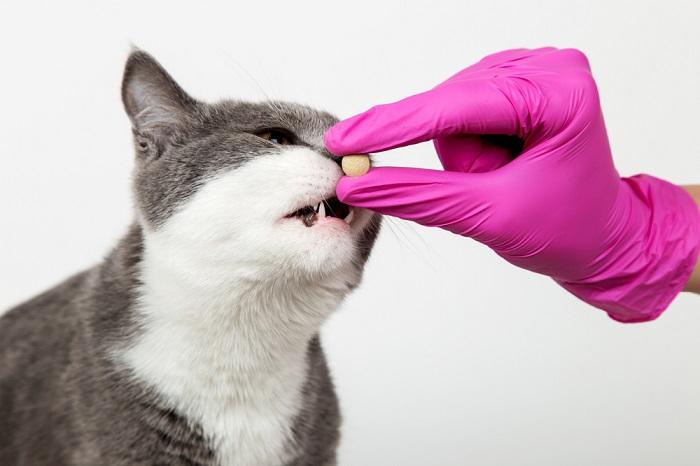
Once prescribed, Pimobendan is usually given for the rest of a cat’s life.
Pimobendan may be used in combination with an ACE inhibitor like enalapril or benazepril, and furosemide (Lasix). Including pimobendan with a medication regimen for heart disease should only be determined by your veterinarian or veterinary cardiologist and it should not be assumed that pimobendan will always be beneficial for every cat.
For this reason and because pimobendan is prescribed in an off-label manner only when appropriate, a specific dose is not provided here.
Most heart medications like pimobendan are continued longterm to help manage heart disease and are rarely discontinued unless side effect concerns are seen. If your veterinarian or veterinary cardiologist has prescribed pimobendan for your kitty, it is very important to continue it at the prescribed dosage and to not discontinue or alter the dose without first consulting with the attending veterinary professional.
Conclusion
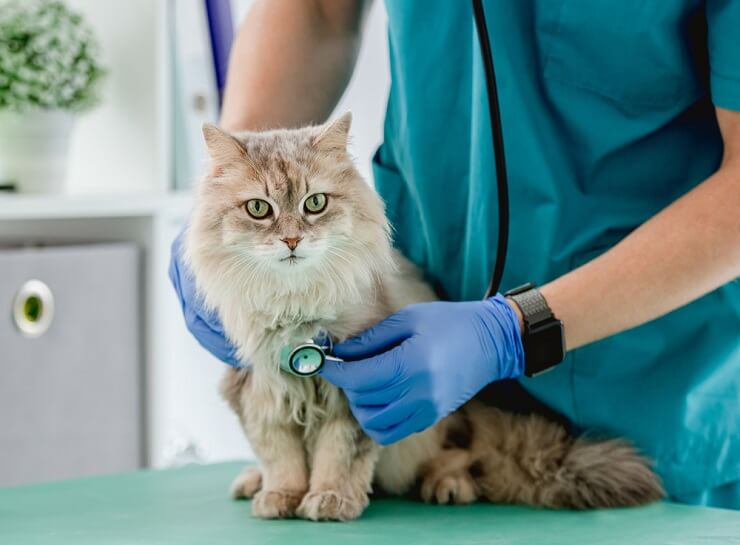
If your cat is experiencing an abnormal heart rate, your veterinarian will do a complete physical exam, including listening to your cat’s heart.
Pimobendan can be a useful medication as part of a therapy regimen for cats with some types of heart disease. Because it may not be appropriate for all cats with heart disease, it is important to only start it based on the medical discretion of a veterinarian.
Drug Dosing Disclaimer: We are only able to provide doses for medications that are FDA approved for use in cats and only as the label guidelines dictate. For medications that are used off-label we can only provide guidelines and safety information for use. Safe and appropriate dosing for off-label medications can only be determined by a primary care veterinarian.
We encourage you to work with your veterinarian to determine if a particular medication is appropriate for your cat. Changing or adjusting a dose for your cat on your own without consulting with a veterinarian can carry risk. We do not encourage use of medications prescribed for human use in pets without first consulting with a primary care veterinarian.
